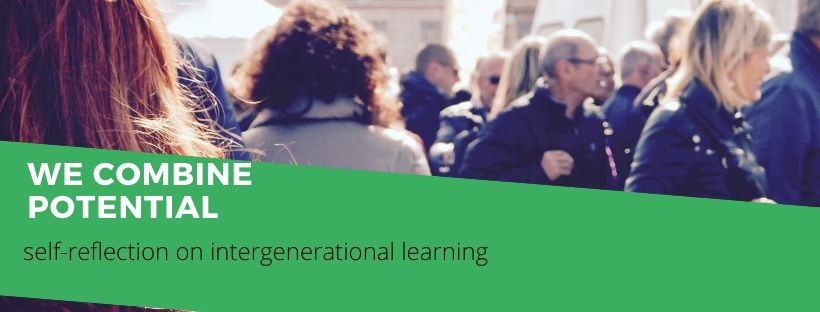Do you wonder whether intergenerational education is a current trend in the university environment and human departments in business or is it really a phenomenon that has always accompanied us, but has been not on a specific name and definition for a long time?
Personally, I am inclined to believe that innate humanity and the desire to discover new business processes and education directs us to the obvious and long-available known phenomena and discourses that nowadays are discovering and are experiencing their renaissance in university fields.
To this belief, I’m guided by the reflections of life and experience. The indisputable beings of society according to the Aristotelian theory, whose t main ideas directing us to the statement that human must be among other people and coexist with them. It is more or less conscious cooperation, coexistence and shaping of relationships, bonds, values and norms. From birth, we are spontaneously assigned to a group that is our family, more or less generatively developed. In my case, this is not a nuclear family, but currently, a 4-generation family, where I am the 3rd generation. The common life, self-observation, imitations, daily conversations, jointly celebrating the world and cultivating traditions inside the house makes the shape of a structured way of feeling, thinking, reacting and sensitivity. Adding to this the external group, to which a person is assigned, as an example can apply heavy compulsory education in Poland – kindergarten – elementary school – junior high school – high school and additional university or technical university, which strongly affect our lives. Adding to this, apart from compulsory/educational groups, such as friends, friends, extended family, neighbours or interest group or other communities, we form a large social group, which, like a seal indicating the personality of individuals. The connotations and relationships I have mentioned above translate into the presence of unclassified, indescribable and unconscious intergenerational learning, which is the subject of this project.
Reflecting on classes and belonging to smaller and related social groups makes us aware of the power and strength of intergenerational education. For me personally, this is a large field for exclusion, a source of many inspirations and an endless field for scientific research, which with the help of professionals who are involved in this project helps to discover, explore and use social services in increasing compatibility in the use of intergenerational use to develop support tools to support this action.
Stay tuned!
Soon you will find the Formal Course – Modules on the e-platform. Both courses will consist of five learning modules:
1. Historical review of intergenerational learning
2. Pedagogical views on intergenerational learning
3. Intergenerational learning, equality and democracy
4. Life-course and intergenerational learning
5. The importance of intergenerational learning in contemporary societies

